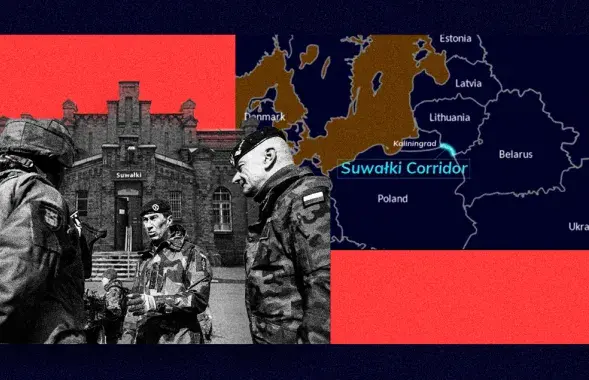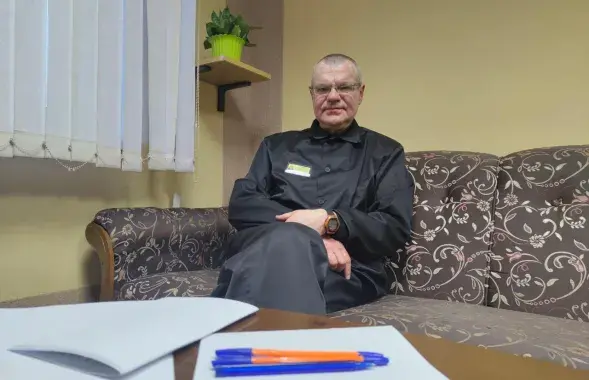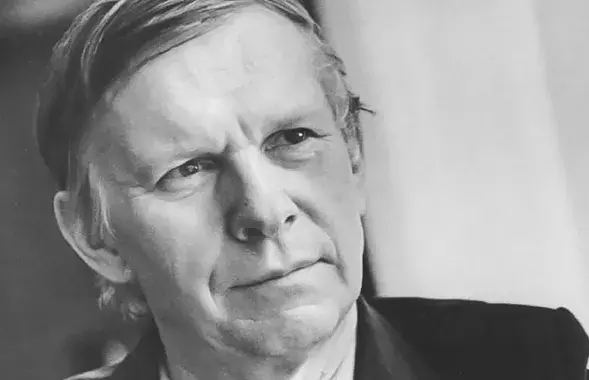Sviatlana Alexievich talks about love, her new book
ERB: Now you are working on your new book about love. What is the book about and why is it about love, quite unexpectedly?
A: I have been writing the book about love for many years. I normally give it a lot of time when it comes to writing. This one is possibly the main book I ever wanted to write.
I have thought up a series of seven books, including The War Does Not Have a Female Face, The Zink Boys, The Chernobyl Prayer and the others that have already been finished. The fifth one – Taken up with Death – will be corrected. It will also have a new name – Time Second Hand.
The new book will be titled A Wonderful Deer of Eternal Hunt. Alexander Green once wrote: “Happiness is a wonderful deer of the eternal hunt.”
Humans always long for something: love, a reason; something pushes human beings along their lives…The new book offers 100 interviews with various people: 50 testimonies by men and 50 testimonies by women.
Those are different love stories in different times: during the war, the blockade, in 1960-1970s and today. The stories are narrated by different people: the poor and the rich, miserable, those who are in love and those who have lost love. It raises again the question: who we are; how we understand happiness and what we are looking for in this life; whether we succeed or not.
ERB: The books that you have already written are filled with tragedy. Now you turn to love. Is love a tragic element for you, too?
A: Earlier I wrote about the Soviet people, who existed in a cruel and dreadful history with a certain super-idea: a powerful idea of socialism and communism.
Those ideas have passed away. They do not work any longer. At least, they are unlikely to work ever on the European continent. So, I wanted to follow to the end what is going to happen with those people and how we are going to live further. We have awakened from this narcosis. But what is next? What is our life associated with further on?
Our life builds around love and death. You know, when we talk about love, this is the brightest event in our lives. At the same time, this is something that gets accomplished seldom. This is rather an expectation of happiness or of something harmonious.
Yet, we are better in being sad, than in living well. This is linked with our philosophy, because we never used to live in a good way. Perhaps, today we are simply learning to live and are not getting ready to cover a pillbox hole with your body or to climb the Chernobyl reactor.
We indeed are learning to look for another kind of man; we are learning to love and to treat life as a small piece of holiday. All this is new to our culture, because our culture is rather the culture of sufferings and survivals.
I think this book will be fit for today, because we all want to be happy. When we got out from our ideological “Ghetto”, we saw that the world was living in another way. We saw that it was possible to live for ourselves and to look for the meaning in every day. It is very important. People do say and think about a lot of things.
The tragic element still exists in our life. If we are very frank, we tend to be rather sad than saying, for example: “Yes, I am happy.” You meet those people very seldom.
ERB: Are people frank and open enough when they talk to you?
A: Pushkin said that it was physically impossible to be frank completely. I think he, being a great artist, realized what people were not able to express in words, especially the notions like death and love.
They often tell me that people talk in a good way in my books. Most of my books are about death. When people are close to their death, they indeed talk very well. People also talk very well, when they are in love, because he or she pulls the best or the worst from what is inside in those moments.
It means that they are totally naked and so to say activated. All their antennas are working, because people change, when they fall in love. But, I do not know if it is possible to describe completely how a sea wave is coming or how the sand is falling. Yet, I think that when I put together all those stories, they will produce the sound of our life and the sound of this feeling.
I cannot say that people close themselves up; sometimes they are not able to tell me anything…A Chukchi man, for example, has ten names of snow, when he narrates about snow: a snow after rain, a morning snow, a snow in the night. A Frenchman talks about love: a body after making love, a body anticipating love…
We do not have such words. It is always either roses or quarrel because of a certain helplessness, something Barbarian and cruel. But, I think this all will become a document. The way we can talk and what we talk about and what we are silent about, all this is a similar document to me.
The important thing is to find people, who have passed through this wonder or are expecting the wonder of love, because this is a wonder indeed. Money does not buy it…I know oligarchs who have pockets bursting with money, but they are miserable, yet their girlfriends are the best models in the world.
Physically, they have everything. But, the wonder is not there. I know people who are happy, living in a tiny apartment with a shared toilet. This is a very mysterious thing, indeed. Perhaps, this is the main event of our life.
ERB: You interview the people both with a lower social status and with a higher public position. In your opinion, is there any connection between a social status of a human being, its public exposure and its love?
A: You know, when people are in love (I am not talking about passion or sex), they are all the same. They all return to somewhat childhood. Even tough people are the same, when I find them in the period of “flying in love”.
The other thing is that one can buy a car to his girlfriend, while the other can afford a bouquet of flowers or something insignificant from the point of view of today’s material values. But, it is all the same. If this is a true feeling, people find themselves in a totally different dimension. And, this dimension is the same for all.
ERB: You have touched on the topic of love among the French, the Belarusians…In your view, is there any difference between the love among the Belarusians and the foreigners?
A: The love is in principle the same. This wonder of love is all the same. But, when the love takes shape of marriage or long-term relations, our cultural, mental traditions, our upbringing our characters come at the forefront.
But, all this happens afterwards. At the beginning, at the very moment which unfortunately does not stay for a long time, the feeling is the same. Later, it transforms into different things.
ERB: Summing up, is it possible to say that the way the people, for example, the Belarusians, express themselves in politics or in any public life matches the way they express themselves in love?
A: No. I can judge by my experience in Europe, where I have lived for seven years. The differences are cultivated rather in the written culture, in the mythology created by art. In the ordinary life, people become more similar. Maybe it is not the best word, but we begin resembling each other.
Internet is a common space. Computers create certain general perceptions, a general culture. That’s why the youth are the same elsewhere. I cannot say that the Belarusians have a specific culture.
When I write a book, I am trying to identify a human being in its time, regardless of national identity. I am looking for an eternal man with the similar features among an Indian, a Canadian, an American, a Belarusian and a Russian. I find people who started talking about the same things in Japan, Mexico or Australia…
ERB: Could you share a story from your upcoming book, something you have remembered the most?
A: There is one story that really touched me. A girl, handicap since child, always was in a wheelchair. But, she had many boys trying to get her. She had to choose between the two. Both of them were very handsome. They both were trying to marry her.
From the standpoint of the contemporary cynical mentality, one could say: “What kind of love is that?” It might seem that the future ahead of this girl was very clear, but she was choosing between the two handsome men. She paints and writes poems. She is actually a very jolly personality. This is a very wonderful world, indeed.
I later talked to the man that she chose. They have lived together for two or three years. It happened that their housekeeper left for Germany to earn the money. He woke up one morning and realized that he had to go and clean up his girlfriend…He learned what the bedpan was all about…It stroke him, of course. However, it did not change their world and their vision. Their love survived.
And, I thought: “Oh, my God. What a story! It contradicts with the time.” The contemporary art often tries to please the time, the vulgarity of this time, the pragmatism of this time. But, this story has risen to what a human being is all about the way God created him.
ERB: Has this story become part of your book?
A: I am thinking about it. The story of my life is not simple. I think in order to go this path to the end in my books, I should not hide behind the events the way I used to do in my previous books about the war in Afghanistan or the Chernobyl catastrophe. Possibly, yes…Possibly…
ERB: After you have finished your seven books, do you have plans for the future?
A: I still have about ten years of this work. Correspondingly, I have ten years of interesting living ahead of me. I have many plans…But, I need ten years to finish this work.
Photo by www.rg.ru



















